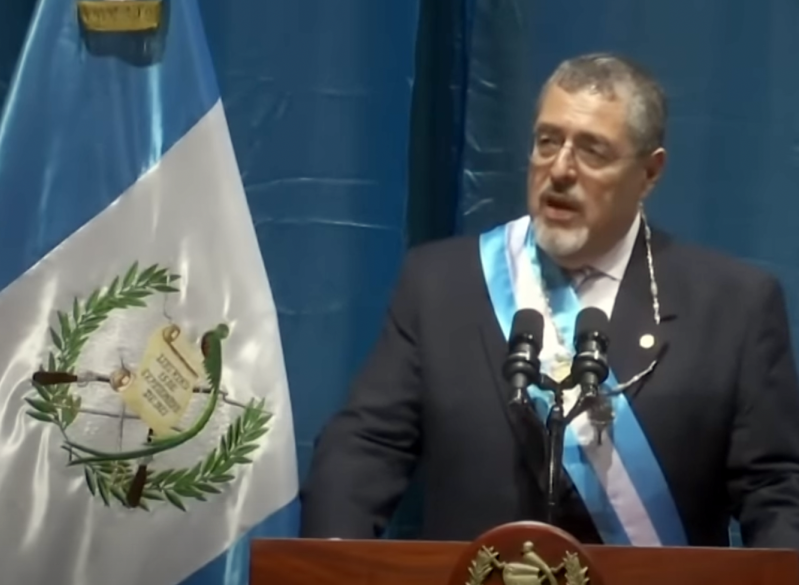
The inauguration of Bernardo Arévalo as Guatemala's new president was marked by a series of controversies and delays on Sunday. The event was postponed for more than 9 hours while the opposition-controlled Congress debated the admission of the incoming legislators, who were to be sworn in before the president.
The situation was so tense that several world leaders who had traveled to Guatemala for the inauguration could no longer wait and returned to their countries to attend to other commitments.
Finally, the new legislators were sworn in, and a congressional board was elected to formally inaugurate the president. Despite the challenges, Arevalo finally took office after midnight, backed by citizens and international delegations.
But the situation in Guatemala in not new, in the past few months the Central American country experienced one of the worst political and social crises in its history after the election of Arevalo. The situation was exacerbated by the actions of the Attorney General who was accused of obstructing the transition to the elected president.
Since the beginning of October, hundreds of indigenous, peasant, and student organizations blocked more than one hundred points in the country.
The conflict intensified due to the lack of dialogue between the outgoing government and the incoming one. The former president, Alejandro Giammattei, accused Arevalo of promoting the destabilization of the country and of evading his responsibility for the blockades and protests. For his part, Arevalo countered that putting an end to the blockades was the responsibility of Giammattei.
The Guatemalan population, being primarily Christian, with almost 50% of its inhabitants identifying themselves as evangelicals, has navigated this political crisis without setting their beliefs aside. Despite the challenges, faith has played an essential role in how Guatemalans handle the situation.
The Evangelical Alliance of Guatemala (AEG) called for 21 days of fasting and prayer for the country. According to a statement published by AEG, they will "pray for the kingdom of God to be established in Guatemalan society, to live in the principles of the Kingdom and to build families that live in righteousness." In addition, intercession will be made so that God will give wisdom to the new president Arévalo, "in view of the decisions to be taken during his term of office."
Lawyer Marco Castellanos, who is part of the Multireligious Roundtable of Guatemala, said that "faith is essential because when there are serious violations of the fundamental rights of citizens, the Church maintains a peaceful position and a mission of hope."
Churches and religious leaders have been responding to the demonstrations and political conflict by providing support and guidance to their communities. Although the crisis has affected all sectors of society, the Christian community has demonstrated resilience and strength in these difficult times.
Castellanos pointed out that "as an unusual situation, an attack on religious freedom has been observed. Those who organized the blockades threatened the pastors, so that they would provide the protesters with food. They demanded support with church trucks and vehicles to make it appear that the evangelical people supported these actions. Otherwise, they threatened to close and damage churches that refused to do so."
Faith has become a pillar for people during this period of uncertainty, offering hope and comfort during chaos. Despite adversity, the Christian community in Guatemala remains committed to peace and justice, reflecting the core values of their belief.
"We believe we are called to be the Lord’s instruments of peace and justice in this world, following the example of Jesus Christ, who taught us to love God and our neighbor as ourselves," Castellanos concluded.





